Background
Leon Richard Kass was born on February 12, 1939, in Chicago, Illinois, to Samuel and Anna (Shoichet) Kass.

5801 S Ellis Ave, Chicago, IL 60637, USA
In 1958, Kass received a Bachelor of Science from the University of Chicago, and a Medicinae Doctor in 1962.
Cambridge, Massachusetts 02138, USA
Kass received a Ph.D. in biochemistry and molecular biology from Harvard University in 1967.




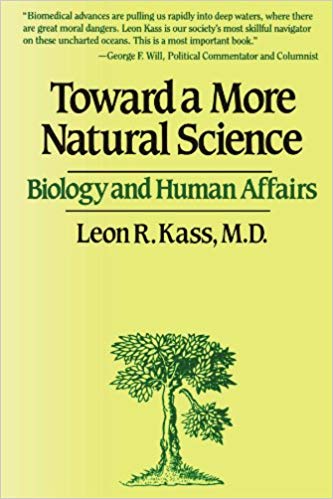
(Examines the ethical questions involved in prenatal scree...)
Examines the ethical questions involved in prenatal screening, in vitro fertilization, artificial life forms, and medical care, and discusses the role of human beings in nature.
https://www.amazon.com/Toward-More-Natural-Science-Leon/dp/0029170710/?tag=2022091-20
1985
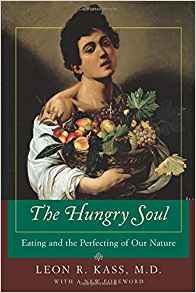
(The Hungry Soul is a fascinating exploration of the natur...)
The Hungry Soul is a fascinating exploration of the natural and cultural act of eating. Kass brilliantly reveals how the various aspects of this phenomenon, and the customs, rituals, and taboos surrounding it, relate to universal and profound truths about the human animal and its deepest yearnings.
https://www.amazon.com/Hungry-Soul-Eating-Perfecting-Nature/dp/0226425681/?tag=2022091-20
1994

(Despite current concerns for “family values” and the diss...)
Despite current concerns for “family values” and the dissolution of marriages, Amy A. and Leon R. Kass see very little attention being paid to what makes for marital success. They argue there are no longer socially prescribed forms of conduct that help guide young men and women in the direction of matrimony; the very concepts of “wooing” and “courting” seem archaic.
https://www.amazon.com/Wing-Oar-Readings-Courting-Marrying/dp/0268019606/?tag=2022091-20
2000

(Being Human is the first humanities reader that focuses o...)
Being Human is the first humanities reader that focuses on humanity in the literal sense - what it’s like to be human. The Norton Edition of this widely praised collection brings the best writings in the humanities to a college audience. Each chapter presents a question or topic central to the human experience, among them "The Search for Perfection," "Are We Our Bodies?," "Vulnerability and Suffering," and "Human Dignity." To guide students as they read these influential works, every selection is prefaced by a concise headnote and thoughtful discussion questions.
https://www.amazon.com/Being-Human-Core-Readings-Humanities/dp/0393926397/?tag=2022091-20
2004
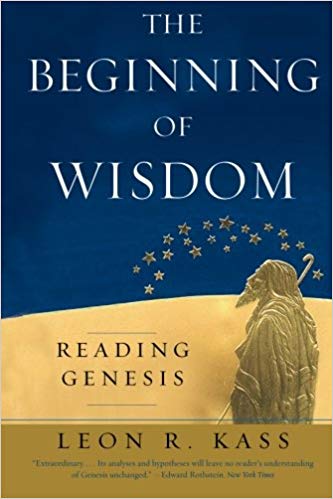
(As ardent debates over creationism fill the front pages o...)
As ardent debates over creationism fill the front pages of newspapers, Genesis has never been more timely. And as Leon R. Kass shows in The Beginning of Wisdom, it’s also timeless.
https://www.amazon.com/Beginning-Wisdom-Reading-Genesis/dp/0226425673/?tag=2022091-20
2006
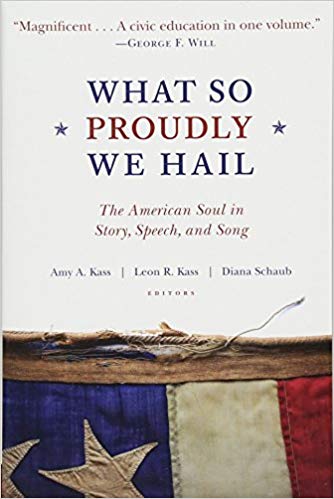
(Concerned about rising cynicism and apathy, more and more...)
Concerned about rising cynicism and apathy, more and more Americans lament the decline in patriotic feeling and civic engagement. Fortunately, this wonderfully rich anthology is here to help all Americans realize more deeply - and appreciate more fully - who they are as citizens of the United States.
https://www.amazon.com/What-So-Proudly-We-Hail/dp/1610170806/?tag=2022091-20
2013
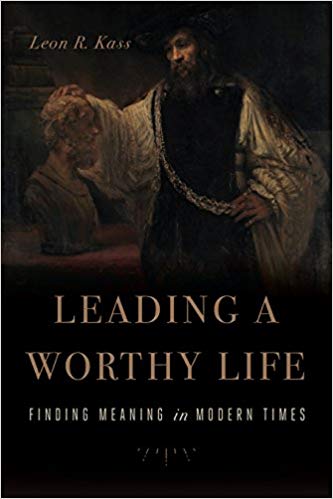
(Most American young people, like their ancestors, harbor ...)
Most American young people, like their ancestors, harbor desires for a worthy life: a life of meaning, a life that makes sense. But they are increasingly confused about what such a life might look like, and how they might, in the present age, be able to live one. With a once confident culture no longer offering authoritative guidance, the young are now at sea - regarding work, family, religion, and civic identity.
https://www.amazon.com/Leading-Worthy-Life-Finding-Meaning/dp/1594039410/?tag=2022091-20
2017
educator physician scientist author
Leon Richard Kass was born on February 12, 1939, in Chicago, Illinois, to Samuel and Anna (Shoichet) Kass.
In 1958, Kass received a Bachelor of Science from the University of Chicago, and a Doctor of Medicine in 1962. He also received a Ph.D. in biochemistry and molecular biology from Harvard University in 1967.
In 1962, Kass passed an internship in medicine at the Beth Israel Hospital in Boston, working in the laboratory of Nobel laureate Konrad Bloch. Kass began to develop an interest in morality in medicine and in biomedical ethics, instigated partly as a result of reading Rousseau's Discourse on the Arts and Sciences.
In 1965, Leon and Amy Kass went to Holmes County, Mississippi to do civil rights work. Later that fall, Kass wrote a letter to his family and friends detailing his and his wife's experiences and appealing to them to donate to the Civil Rights Movement.
After completing his doctorate, Kass conducted molecular biology research for the National Institutes of Health, authoring several scientific papers while serving in the U.S. Public Health Service.
In 1970, he left the laboratory at NIH. He became, then, the executive director of the Committee on Life Sciences and Social Policy at the National Research Council of the National Academy of Science. The Academy produced the first public document that tried to assess the ethical and social consequences of the coming advances in biotechnology.
From 1972 to 1976, Kass was a teacher, first at St. John's College, Georgetown University from 1974 to 1976, and at Chicago from 1976 onward. At St. John's, Kass taught in the Great Books program as well as in-depth studies of Aristotle's De Anima and Nicomachean Ethics and Darwin's On the Origin of Species. At the University of Chicago, Kass taught courses across the humanities and sciences, including both undergraduate and graduate seminars in the Nicomachean Ethics, Plato's Symposium and Meno, Lucretius, human passions, science and society, Rousseau's Discourse on the Origin of Inequality, Genesis, Darwinism, Descartes's Discourse on the Method, classical geometry, Tolstoy's War and Peace, marriage and courtship, Exodus, and biotechnology.
Kass co-founded in 1977 the "Human Being and Citizen" common core course at Chicago, today the most popular humanities core course at Chicago, devoted to the question of what is an excellent human being and what an excellent citizen. In 1983, he, Allan Bloom, and James M. Redfield founded the "Fundamentals: Issues and Texts" program. Kass taught in and chaired this program for eighteen years.
In 2001, Kass was appointed the chairman of the President’s Council on Bioethics. Famously, he asked all the members of the commission to begin their work by reading “The Birth-Mark,” a short story about scientific hubris by Nathaniel Hawthorne. In 2002 and 2003, the council issued two major reports: Human Cloning and Human Dignity and Beyond Therapy. In 2003, Kass also published The Beginning of Wisdom, his meditation on reading the Book of Genesis, a text that he has taught many times. Kass left his position as chairman in 2005, and has since maintained his position at the University of Chicago as the Addie Clark Harding Professor in the Committee on Social Thought and the College, and as the Hertog Fellow in Social Thought at the American Enterprise Institute.
Leon Richard Kass is a highly regarded bioethicist whose books explore the ethical and social implications of scientific advancement. He has been listed as a noteworthy humanities educator by Marquis.
He won the University of Chicago's Llewellyn John and Harriet Manchester Quantrell Award for Excellence in Undergraduate Teaching in 1983 and the Amoco Foundation Award for Distinguished Contributions to Undergraduate Teaching in 1993.
Kass also received the Harvard Centennial Medal and the Intercollegiate Studies Institute's Gerhard Niemeyer Award in 2003 and the inaugural Bradley Prize from the Lynde and Harry Bradley Foundation in 2004.
(Examines the ethical questions involved in prenatal scree...)
1985(Concerned about rising cynicism and apathy, more and more...)
2013(Most American young people, like their ancestors, harbor ...)
2017(Being Human is the first humanities reader that focuses o...)
2004(As ardent debates over creationism fill the front pages o...)
2006(The Hungry Soul is a fascinating exploration of the natur...)
1994(Despite current concerns for “family values” and the diss...)
2000Although Leon's upbringing was not religious, it was moralist. He would not begin to explore his religious heritage until later in his career.
Although concerned with specific bioethical questions in vitro fertilization, cloning, genetic engineering, the selling of human organs, euthanasia, and the like Kass’s principal focus is on the profoundly deep questions about the meaning of our existence as embodied human beings underlying issues of this kind and the danger of dehumanization inextricably linked with the enormous powers over nature given by the new biology.
The most fundamental challenge posed by the brave new biology, Kass writes, comes from the underlying scientific thought. In order effectively to serve the needs of human life, modern biology reconstructed the nature of the organic body, representing it not as something animated, purposive and striving, but as dead matter-in-motion. This reductive science has given us enormous power, but it offers no standards to guide its use. Worse, it challenges our self-understanding as creatures of dignity, rendering us incapable of recognizing dangers to our humanity that arise from the very triumphs biology has made.
Moreover, precisely because the reductivist science underlying the new biotechnology recognizes no standards to determine whether its proposed uses are good or bad, modern technology is not so much a problem as a tragedy: the master becomes more of a slave not only through the unintended consequences of technology but from its victories which transform the souls and lives of the victors, preventing them from tasting triumph as success.
Kass believes that the kind of human dignity associated with the new biology and its underlying anthropology is inhuman, because it dualistically sets up the concept of personhood in opposition to nature and the body and thus fails to do justice to the concrete reality of our embodied lives and pays no respect at all to the dignity we have through our loves and longings central aspects of human life understood as a grown togetherness of body and soul.
Kass thus seeks a notion of human dignity rooted in a proper anthropology that goes beyond the said dignity of persons, to reflect and embrace the worthiness of embodied human life. The dignity he seeks is that of a life that will use our awareness of need, limitation, and mortality to craft a way of being that has engagement, depth, beauty, virtue and meaning not despite our embodiment but because of it.
Unfortunately, mainstream bioethicists today are blind to the signs of dehumanization. Kass believes that, far from questioning the human meaning of the proposed uses of the new technology, they have rather entered in large numbers into the employ of the biotechnology companies, bestowing their moral blessings on the latest innovations assuredly not for love, but for money.
Kass believes that an opportune moment to seize the initiative and gain some control of the biotechnical project is presented by the fierce debate now going on over the cloning of human embryos. Now, by firmly saying No! to cloning, whether for reproduction or for research, may be as good a chance as we will ever have to get our hand on the wheel of the runaway train now headed for a posthuman world and to steer it toward a more dignified human nature.
Kass regards cloning or asexual reproduction a profound defilement of our given nature as procreative beings and of the social relations built on this natural ground and as a radical form of child abuse. Asexual reproduction, he continues, is a radical departure from the natural human way, confounding all normal understandings of father, mother, sibling, grandparent and the like, and all moral relations tied thereto.
Noting that asexual reproduction is found only in the lowest forms of life and that sexuality brings with it a new and enriched relationship to the world, he reflects on the Genesis accounts of human origins, sex, and marriage. It is a more complex activity precisely because it engages us bodily, erotically, and even spiritually, as well as rationally.
Kass argues that cloning for research is even more perverse than cloning for children. If a human being is cloned for reproduction, it at least has a chance to continue life, whereas if one is cloned for research it is doomed to death. To ban the former and allow the latter is blatantly anti-life, making it an offense to keep the baby alive and bring it to birth.
Discussing the age of genetic technology and possibilities of genetic engineering Kass believes that threats to human dignity will probably arise even with the most humane and enlightened use of the new technology. Ultimately, the price to be paid for producing optimum or even only genetically sound babies will be the transfer of procreation from the home to the laboratory.
Increasing control over the product can only be purchased by the increasing depersonalization of the entire process and its coincident transformation into manufacture. Such an arrangement will be profoundly dehumanizing. Since Kass rightly regards a human being as largely, if not wholly, self-identical with his enlivened body, he argues that it is not only wrong but foolish to treat the body as a mere instrument and to consider ones bodily organs as commodities one owns or possesses. Thus the bodily organs of a human person, which are goods of the person and not merely goods for the person ought not to have price tags placed on them and sold as marketable items.
Kass vigorously attacks the notion that there is a right to die. There can be no right to die in any real sense. Kass argues, moreover, that there is such a thing as a proper lifespan. Finally, Kass argues that biology is essentially limited because of its very nature. It seeks to discover solutions to problems, many of them real. But it can never plumb the depths of human life, for life is not a problem to be solved but a mystery to be contemplated.
Quotations:
"Morality, not Judaism, was the religion of our home, morality colored progressively pink with socialism, less on grounds of Marxist theory, more out of zeal for social justice and human dignity."
"We are enmeshed in a lineage that came from somewhere and is going to make way for the next generation."
"We are somehow natured, not just to reproduce, but for sociality and even for culture."
"There's an ancient tension between wanting to savor the world as it is and wanting to improve on the world as given."
"Is it possible to covet a much longer life for one's self and be as devoted to the well-being of the next generation? It's a long argument."
"Cloning looks like a degrading of parenthood and a perversion of the right relation between parents and children."
Kass is a member of the Phi Beta Kappa and Alpha Omega Alpha.
Kass is often referred to as a bioethicist, but he eschews the term and refers to himself as "an old-fashioned humanist. A humanist is concerned broadly with all aspects of human life, not just the ethical." Although Kass was originally trained as a physician and biochemist and has been a member of several distinguished biomedical research foundations, he identifies himself more as simply a thinking person than as an academic.
Quotes from others about the person
“Kass presents a profound yet broadly accessible reflection on the most basic issues of nature and human nature.” - Roger D. Masters
On June 22, 1961, Kass married Amy Judith Apfel. They have two children, Sarah and Miriam.
